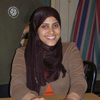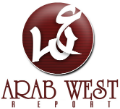Conflict Resolution and a Culture of Peace in Egypt
You are here
CAWU intern, Abrar El-Ghannam, reports on her experiences at a conflict resolution workshop. The participants were taught about different conflict resolution techniques and then given the chance to put them into practice.
Organized by the Arab Reform Forum and in partnership with the Center for International Development and Conflict Management at University of Maryland, I was invited to attend a workshop on ’Conflict Resolution and a Culture of Peace in Egypt’ that was held at the Bibliotheca Alexandria from 29th to 31st of May, 2008.
The workshop was run by illustrious professors, Dr. Edy Kaufman and Dr. John Davis from the Center for International Development and Conflict Management at University of Maryland, who are expert scholar-practitioners in the area of conflict resolution.
They introduced us to innovative methods of dealing with the world’s conflicts, including political, ethnic, religious or local techniques, through working mainly on track II diplomacy (citizens’ diplomacy). Citizens’ diplomacy is considered to be an effective mean that works with unofficial citizen representatives of the parties in conflict. The workshop was more like an assimilation model that introduced us to the model of the innovative problem solving workshops-IPSW, which could be used to facilitate conflicts between parties in conflict. As participants we had the opportunity to use the methods and techniques taught in an assimilated conflict situation.
 It was very educational not only to be introduced to such methods, but also to practice them, since all techniques and tools taught were later employed by the participants to work out conflicts. On day one we were introduced to the different phases required in the facilitation of a conflict starting with the ice-breaking phase between the parties in conflict, this was followed by; building trust, finding commonalities, developing facilitation skills in track II diplomacy, building the skills for constructive engagement, learning how to promote non-violent communication, active listening, building consensus, and mediation. All concepts were followe
It was very educational not only to be introduced to such methods, but also to practice them, since all techniques and tools taught were later employed by the participants to work out conflicts. On day one we were introduced to the different phases required in the facilitation of a conflict starting with the ice-breaking phase between the parties in conflict, this was followed by; building trust, finding commonalities, developing facilitation skills in track II diplomacy, building the skills for constructive engagement, learning how to promote non-violent communication, active listening, building consensus, and mediation. All concepts were followed with practice. I found it very educational to take on the role of a mediator between two conflicting parties. The conflict involved a dispute between a brother and a sister over inheritance division according to Sharī‘ah against the civil Canadian law.
On day two, we were introduced to an innovative methodology used in conflict facilitation known as ARIA (Adversarial, Reflexive, Integrative, Action Methodology). ARIA introduces a useful process for facilitating a transition by the parties from an adversarial stance in the conflict to an integrative one. There are four phases starting from the adversarial phase where parties focus on their positions and issues in the conflict. This is followed by the reflexive phase which brings to the fore the underlying needs and motivations behind the positions of each party. After this is the integrative phase where both parties brainstorm together to look for consensual ideas, and in the final (action) phase they plan action steps specifying who will undertake what and how.
To understand the model, we got to agree first on a conflicting issue, which was the Egyptian policy toward border security with Gaza. As participants, we were divided into different roles. Some people became supporters of the National Democratic Party policy, while other were for the Muslim Brotherhood’s one.
On the second and the third days of the workshop, we applied ARIA methodology to work out the conflict. This process was very rewarding not only as a way to get to know details about both parties’ [NDP & MB] policies toward the border security with Gaza, but also in terms of learning how to identify your issue and position in a conflict, how to negotiate with the other party, how to promote non-violent communication, and how to develop innovative ideas to conflict situations.
The workshop came to an end with the participants from both sides reaching a consensus toward ideas to work out the conflict. However, we are expected to meet again in the near future to work on the final phase of ARIA, which is setting an action plan to implement the ideas we agreed upon and to identify exactly who is going to do what, when and how.
In general, I found the workshop content very relevant to my internship at CAWU as this approach of managing conflicts on a track II basis could be used fruitfully in working out tense situations between the Muslim world and the West, or between the Muslims and the Christians in Egypt. I find it beneficial when faced with such sectarian problems for instance in Egypt to organize such workshops that call for each side to confront the other and listen to each other which would help at least to recognize their mutual perceptions, and to understand more what are the fears of each side. I believe this would be a first effective step toward solving such conflict situations.




